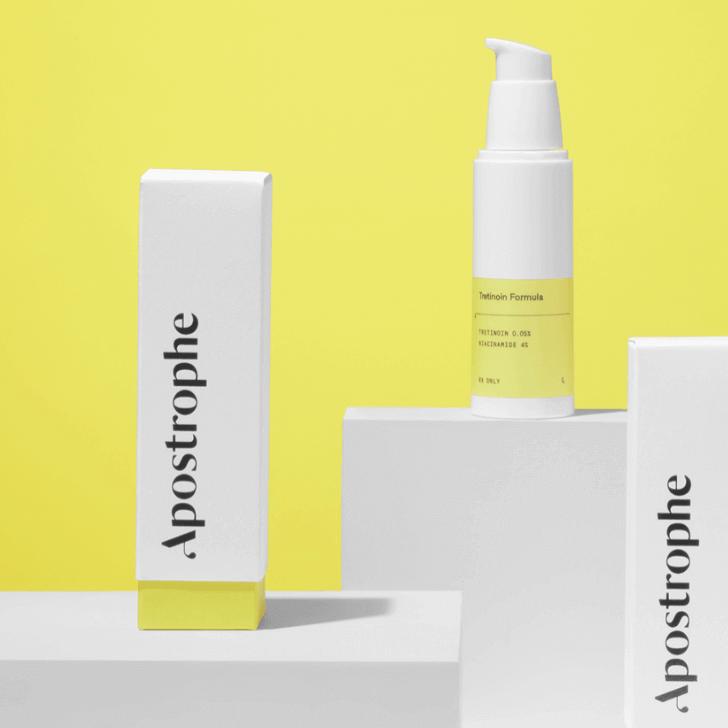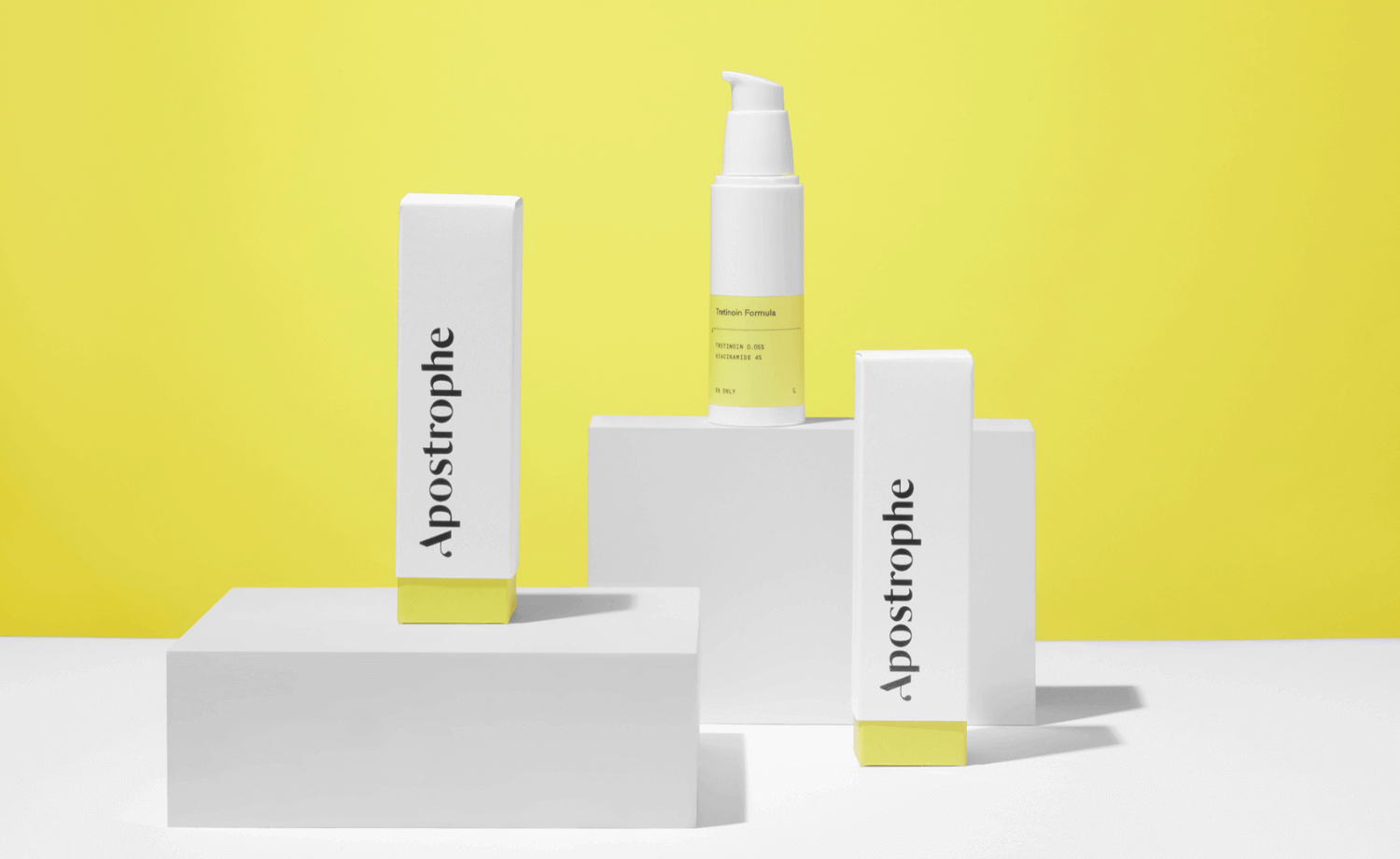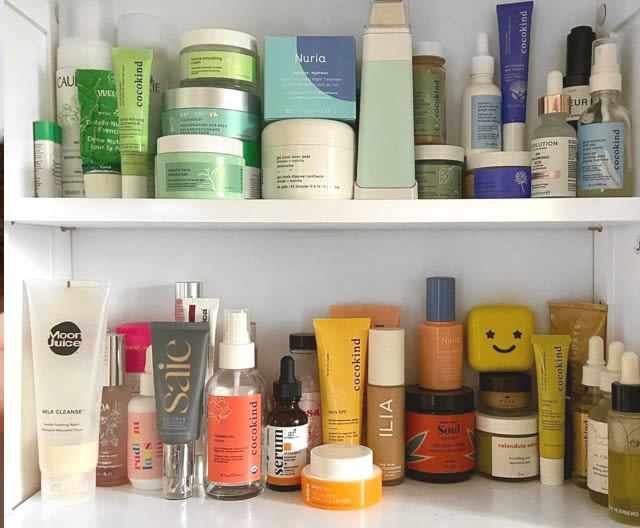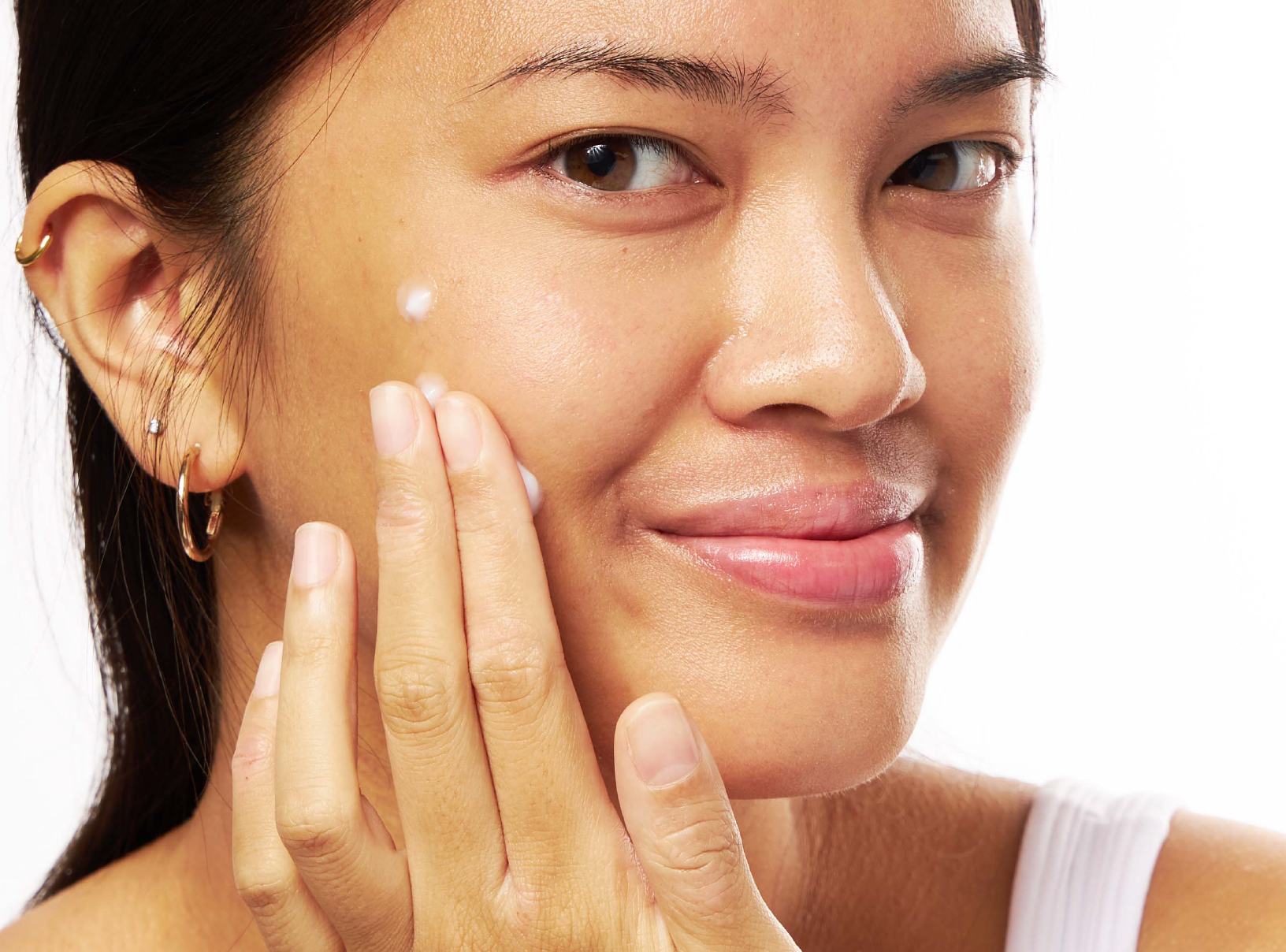Apostrophe Treatments
Topical Acne Meds: An Overview


SHARE
Apostrophe Treatments
Topical Acne Meds: An Overview
Medically reviewed by Aimee Paik, MD
Written by Apostrophe Team
Last updated 4/5/2024
Oral medications like Accutane, spironolactone, and antibiotics often get credit for doing the heavy lifting when it comes to treating persistent or severe cases of acne (you can learn more about them here!). But despite all the well-deserved buzz about them, classic topical treatments are classic for a reason: they work! In fact, topical medications are the most important component of your acne regimen since they can keep skin clear long-term and help minimize the long-term use of oral medications. Benzoyl peroxide may seem old-fashioned, but it has been used to treat acne in the US for decades and, despite the development of new drugs, it is still recommended by dermatologists. So let’s get into topicals and see why they are still some of the best acne treatments around.
Antimicrobials
Topical treatments typically target inflammation and reduce your skin's acne-causing bacteria, so you don't always need to rely on pills or oral medications to clear pesky acne-causing bacteria (learn more about antimicrobial ingredients here). They are sometimes used in conjunction with other oral antibiotics to boost their performance and get your skin clearer, faster. Plus, we offer all of these acne-fighting ingredients from our own partner pharmacy so you can get your meds delivered affordably!
Benzoyl peroxide – Registered to treat acne in the US since 1960, benzoyl peroxide (typically shortened to BPO) is one of the oldest treatments still on the drugstore shelf today. Tried and true, it is an antimicrobial and anti-inflammatory treatment that works by penetrating pores and releasing oxygen compounds that kill acne-causing bacteria. BPO is also used to prevent antibiotic resistance. Unlike antibiotics, BPO does not target any specific function of the bacterial cell which means that bacteria cannot become resistant to it. Using this treatment in conjunction with antibiotics allows the antibiotics to continue working, even after long term use.
Clindamycin – Clindamycin is a prescription strength topical antibiotic that kills acne-causing bacteria and decreases inflammation in the skin. It can be a very effective treatment against acne and is often used in conjunction with other oral or topical treatments.
Metronidazole – Metronidazole is a topical medication with antimicrobial and anti-inflammatory properties that is primarily used for the treatment of rosacea. It helps reduce breakouts and may also help with facial redness. The treatments for acne and rosacea often overlap and generally anything that soothes redness will help your skin look clearer and brighter.
The glow up
These ingredients don’t combat the bacteria that triggers acne, but they do help the overall appearance of the skin by smoothing texture, unclogging pores, and exposing healthy and glowing skin. Depending on your individual skin needs, your provider may recommend you use these treatments instead of, or along with, one or more of the antimicrobials mentioned above.
Tretinoin – Tretinoin can be one of the best additions to anyone’s skincare routine AND is the most important medication to keep acne under control long-term after coming off oral treatments. Tretinoin is a retinoid so it not only treats acne, but also smoothes fine lines and wrinkles and can boost your glow. It helps skin cells shed, thereby preventing clogged pores and letting your fresh skin shine through. It also promotes collagen production to reduce fine lines and may help with mild scarring over time.
Niacinamide – Niacinamide decreases hyperpigmentation, maintains the skin’s moisture barrier, and smoothes texture. Its moisturizing properties can be especially helpful to prevent or treat the dryness or peeling some of the harsher acne medications can cause (without clogging pores and causing more breakouts!). That’s why we included it in a number of our treatment formulas so your skin can stay hydrated and happy :)
Azelaic acid – Azelaic acid is a topical, anti-inflammatory medication that can be used to treat both rosacea and acne. It can also help certain pigmentary disorders such as post-inflammatory hyperpigmentation and melasma, making your skin brighter and clearer. Plus, it’s one of the few medications that is safe to use during pregnancy! 👶
Salicylic acid – Salicylic acid is one of the most common ingredients found in over-the-counter acne treatments (Editor’s note: that Neutrogena Pink Grapefruit cleanser was a staple in everyone’s bathroom when I was in middle school!). It is a beta hydroxy acid and primarily targets blackheads and whiteheads. Salicylic acid helps prevent clogged pores by slowing the shedding of cells within skin follicles. Find out more in our Acids 101!
Topicals are important throughout your acne journey! Not only do they directly target inflammation and bacteria, but they can also help maintain the health of your skin during and after treatment. With all the options available out there, a dermatology provider is the best person to guide you to the medications that will be the most helpful for you and your skin. Good thing we have both! Visit our homepage to connect with a derm provider and step up your skin game.
1. Gehring W. Nicotinic acid/niacinamide and the skin. Journal of Cosmetic Dermatology. 2004;3(2):88-93. https://www.ncbi.nlm.nih.gov/pubmed/17147561. Accessed June 17, 2019. 2. Plewig G, Kligman AM. ACNE and ROSACEA. Google Books. https://books.google.com/books?id=0cD-CAAAQBAJ&pg=PA613#v=onepage&q&f=false. Published 2000. Accessed June 17, 2019. 3. Rosacea. Rosacea | American Academy of Dermatology. https://www.aad.org/public/diseases/acne-and-rosacea/rosacea. Accessed June 17, 2019. 4. Salicylic acid. Salicylic acid | DermNet NZ. https://www.dermnetnz.org/topics/salicylic-acid/. Accessed June 17, 2019.
Like what you just read? Sign up for our email list to get the scoop on skincare science delivered straight to your inbox.

Education
What is milia?
What is milia? Today, we’re jumping into one type of bump that you may have heard about most commonly in infants — milia.
Read More
Education
Best moisturizer for acne-prone skin
If you have combination acne-prone skin, figuring out which moisturizer is best for your skin might be tough. In this guide, we break down the best moisturizer for combination, acne-prone skin.
Read More
Education
How to build a face care routine
As you get into skincare, it might seem overwhelming, especially trying to figure out the order you're supposed to apply products in. Below, we detail how to build a face care routine for your skin!
Read More
